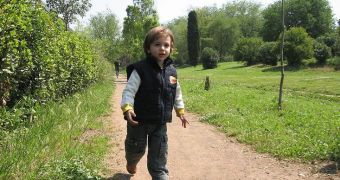According to a new scientific study, it would appear that small children are perfectly capable of interpreting and figuring out whether those around them have good intentions or not. The finding applies to toddlers that are as young as 21 months, the team behind the new investigation shows. The researchers were based at Queen's University. They say that the small children even try to reward those who behaved nicely to them, to the best of their abilities.
“This is the first time anyone has demonstrated that children this young can be selective in their helping. Before that, we just knew children helped, and that they helped a lot. In this case, the helpfulness didn't really change – what changed was who the child was distributing that helpfulness to,” explains PhD student Kristen Dunfield, who conducted the research together with Queen's University psychology professor Valerie Kuhlmeier.
What surprised the researchers beyond expectations was finding out that toddlers attempted to repay the “services” of the adults trying to help them even if their desired outcome had not been fulfilled. In other words, it would appear that small children appreciate the thought of someone helping them, and not necessarily the action itself. Details of this investigation were published recently in the April issue of the respected scientific journal Psychological Science. The conclusions were derived from a series of three experiments, each involving 16 infants and two actresses, acting as the willing adults.
Each of the tests revolved around the actresses giving a child their toy, refusing to do so, or attempting to pass the toy on, but without success. When the researchers set up the proper conditions for the children to help the actresses in return, the toddlers did so for the adults that gave them the toy, or who tried and could not. They did not, however, help the actress that refused to give them their toy in the first place.

 14 DAY TRIAL //
14 DAY TRIAL //